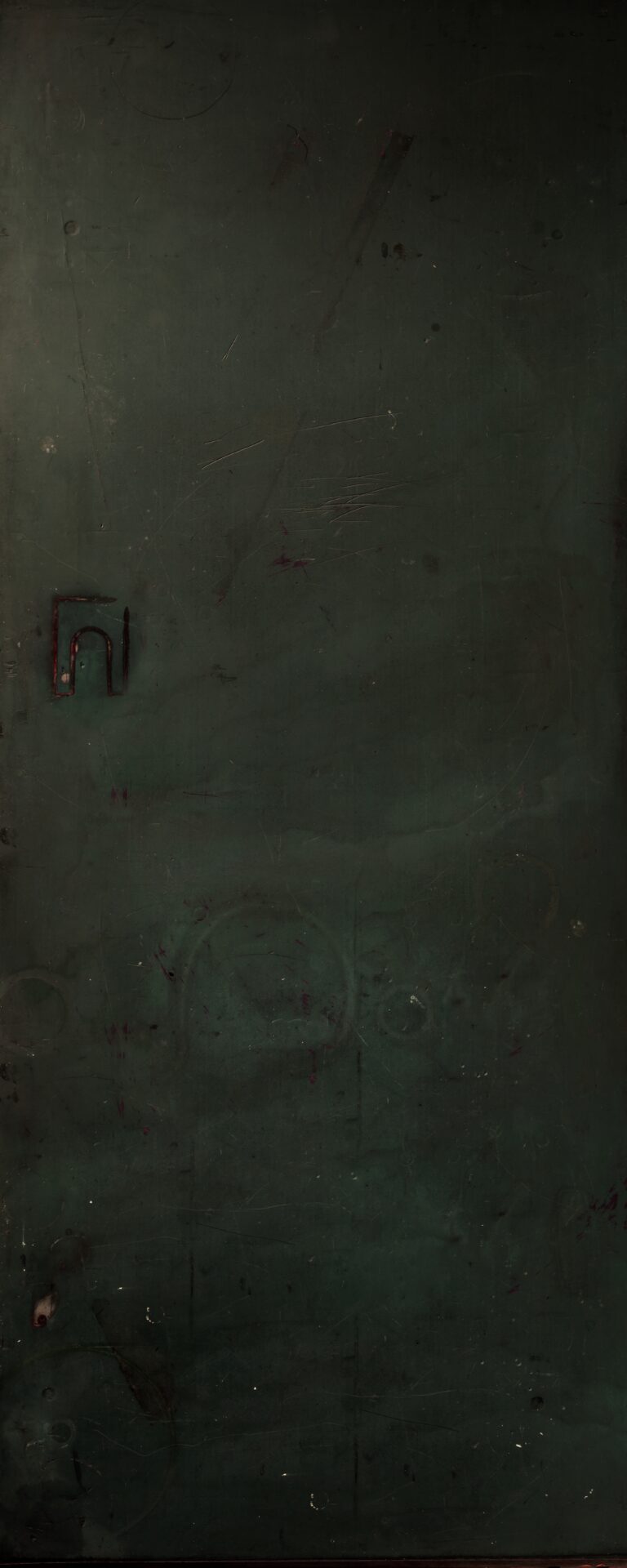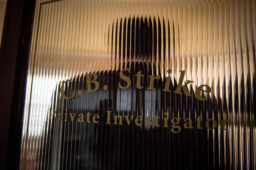Epigraphs of The Cuckoo’s Calling
Throughout the Strike series, Robert uses epigraphs at the beginning of a chapter. There are only seven epigraphs in The Cuckoo’s Calling, and all of them, bar the first, are from Latin authors. Let’s explore the epigraphs used and how they appear in the first book.
A Dirge by Christina Rossetti
Why were you born when the snow was falling?
You should have come to the cuckoo’s calling,
Or when grapes are green in the cluster,
Or, at least, when lithe swallows muster
For their far off flying From summer dying.
Why did you die when the lambs were cropping?
You should have died at the apples dropping,
When the grasshopper comes to trouble,
And the wheat-fields are sodden stubble,
And all winds go sighing
For sweet things dying.
What we mourn is the physical image flickering across a multitude of red-tops and celeb mags; an image that sold us clothes and handbags and a notion of celebrity that, in her demise, proved to be empty and transient as a soap bubble.
The Cuckoo’s Calling, Robert Galbraith
Lula Landry was a supermodel, loved by the tabloids and at the height of her career when she was killed in a fall from her flat in Mayfair. Like the person mourned in Rossetti’s dirge, she died too young. Her fame makes her almost an abstraction rather than a real person at first, but when Cormoran Strike reads her erratically spelled emails, full of in-jokes and nicknames, she emerges as real living human being.
But her death is also the beginning of something, her brother’s assertion that her death was not a suicide leads to the first case Cormoran Strike and Robin Ellacott work together.
Like much of Rossetti’s verse, ‘A Dirge’ is a simple lyric which contains a lot of subtlety and a wealth of natural images. It has the feel of a song to it and all those images of nature provide a poignant contrast to the city based high energy lifestyle Lula lived before she died.
Rossetti came from a very successful family – her brother, Dante Gabriel Rossetti, was a poet and famous pre-Raphaelite painter, but they often had money troubles, and Christina’s health was poor. This didn’t stop her having a wide circle of friends though, and she lived into her sixties. Her work was highly praised during her lifetime and is still popular today. Another of her poems was set to music by Gustav Holst to become the much-loved Christmas carol ‘In the Bleak Midwinter’, and modern critics find a rich subtext of longing and repression in her work. We don’t know for whom the poem was written.
Rossetti is now buried in Highgate Cemetery, where Strike and Robin will find themselves five years after the death of Lula Landry, investigating the murder of artist Edie Ledwell (The Ink Black Heart). The epigraphs of The Ink Black Heart include many lines of Rossetti’s poetry.
The other epigraphs in The Cuckoo’s Calling are all from Latin texts. In 2014, when they are investigating the death of Edie Ledwell, Robin tells Strike she always thought he studied classics at Oxford. Strike, like Robin, didn’t complete his degree, dropping out to join the army, but he was actually studying history. He explains to her he doesn’t know Latin that well – he just has a GCSE and a good memory. When he was thirteen, Strike stole a few classical Latin texts from a man he and his mother shared a squat with. The man, a former teacher, had been patronising Strike, mocking his lack of a classical education, and Strike was determined never to let that happen again. So, he took the books and taught himself.
He deploys his stock of quotations at various times during their investigations, notably at the Groucho, flummoxing author Michael Fancourt with Catullus (The Silkworm). He also thinks of a Catullus lyric earlier in that investigation when dealing with his feelings about his ex-fiancée, Charlotte.
Prologue
Is demum miser est, cuius nobilitas miserias nobilitat.
Unhappy is he whose fame makes his misfortunes famous.
– Lucius Accius, Telephus
She became a morality tale stiff with Schadenfreude, and so many columnists made allusion to Icarus that Private Eye ran a special column.
The Cuckoo’s Calling, Robert Galbraith
This line is the epigraph for the prologue, when the press cluster round the Mayfair address where Lula Landry has just fallen to her death in the snow, and describes the media over the following weeks.
The story of her death drives all other news off the front pages, and her character, friendships, love life and fame are all dissected on TV and in the newspapers. For a while her image is everywhere, until the frenzy wears itself into staleness.
At the end of the book, when the case is solved in a blaze of publicity, the poem Strike thinks of then is not classical, but Victorian like the Rossetti. Leaving the hospital he thinks of Ulysses by Alfred Lord Tennyson. The section he remembers ends ‘I am become a name.’
The disadvantages of fame will become apparent in later cases however, as the paparazzi begin to cluster in Denmark Street and Strike too becomes the focus of attention he does not want.
Lucius Accius was born in 170BCE. Only fragments of his works now remain, but he was much admired in his own time. The play this fragment comes from is about the son of Hercules who was supposedly injured and healed by Achilles, one of the famous fighters in the Trojan Wars.
Part One
Nam in omni adversitate fortunae infelicissimum est genus infortunii, fuisse felicem.
For in every ill-turn of fortune
the most unhappy sort of unfortunate man
is the one who has been happy.
– Boethius, De Consolatione Philosophiae
Walking out on Charlotte had left him on the brink of true destitution. He was so deeply in debt that all that stood between him and a sleeping bag in a doorway was John Bristow.
The Cuckoo’s Calling, Robert Galbraith
The author of this epigraph, Boethius, was once the most powerful man in Rome, but wrote this book while awaiting execution in gaol.
The book ‘On the Consolations of Philosophy’ is the record of a conversation between him and ‘Lady Philosophy’ which asks how to live in such a cruel and fickle world with its sudden changes of fortune.
In the first part of The Cuckoo’s Calling, Strike is dealing with the reality of his split from Charlotte. He asks himself if it is really over this time, but this is the first time in their stormy relationship that Strike walked out rather than Charlotte. He knows the break will cause him excruciating pain, but also that what she has done is unforgivable. Added to that is the practical truth he has made himself intentionally homeless by abandoning her stylish maisonette in Holland Park Avenue for the floor of his office.
Part Two
Non ignara mali miseris succurrere disco.
No stranger to trouble myself, I am learning to care for the unhappy.
– Virgil, Aeneid, Book 1
Patting the sobbing woman on the back, Robin manoeuvred her, by minuscule increments, back into the outer office.
The Cuckoo’s Calling, Robert Galbraith
The epigraphs to part two and three both come from the Aeneid, by Virgil. Virgil lived between 70 BCE and 19BCE and the Aeneid is one of the most important poems ever written – a foundation of western literature. It’s a story full of gods and monsters, tragedy and adventure which follows the hero Aeneas as he travels from Troy to the place which will one day be Rome. The line here is spoken by Queen Dido, as she welcomes Aeneas and his crew to her city.
As a child Strike led a strange peripatetic life with his mother, Leda, and sister Lucy. It was a chaotic and occasionally dangerous existence. Whatever scars it has left with him, it’s also taught him to read people and empathise. He can also recognise a liar. Looking for a present for his nephew, he thinks carefully over expression tone and mannerisms of Tansy Bestigui with whom he’s just had lunch. He knows the film producer’s wife is lying to him about the moments around Lula’s death, but he doesn’t know why.
Robin proves her own ability to care for those in distress. As her week at the office ends, she deals kindly and efficiently with Mrs Hook who has just learned her husband has been unfaithful and throws herself on Robin, howling like a dog. Strike doesn’t know yet about the trauma in Robin’s past, or the troubles to come, but her resilience and practical good sense are already on display.
Part Three
Forsan et haec olim meminisse iuvabit.
Maybe one day it will be cheering even to remember these things.
– Virgil, Aeneid, Book 1
Strike asked himself whether the strange suspicion that had him in its grip was anything more than a shadow moving in the depths of a muddy pool:
The Cuckoo’s Calling, Robert Galbraith
In this epigraph, Aeneas and his men are in the midst of a storm and Aeneas is trying to urge them on, reminding them of past dangers they’ve escaped, and how, someday, this too will be another story to tell.
It’s a stormy time in the investigation too. Strike is being pressured by Lula’s uncle, his leg is suffering, and he is still tormented by thoughts of Charlotte. He is sore, stymied and frustrated. Robin though, having found a way to stay at the agency until she gets a permanent job, demonstrates great skill playing an undercover role. Her fiancé, Matthew, though is unsupportive, suggesting that Strike is somehow a fake.
Part Four
Optimumque est, ut volgo dixere, aliena insania frui.
And the best plan is, as the popular saying was, to profit by the folly of others.
– Pliny the Elder, Historia Naturalis
‘Bollocks,’ shouted Carver. ‘You’re speaking to the two men who proved Landry jumped.
The Cuckoo’s Calling, Robert Galbraith
In this quote, Pliny is actually talking about taking advantage of other people’s business mistakes when buying farmland, rather than running a detective agency. But there are parallels.
Tragedy hits the investigation when a body is found in the Thames, and the police refuse to listen to Strike when he tells them this death is related to Lula’s. Though Strike is frustrated, their reluctance to investigate will make Strike a hero in the press when the case is solved.
Also, as in all Strike’s investigations, he knows how to let witnesses trip themselves up if they are lying or expose certain truths about themselves while they are trying to hide others.
Historia Naturalis is an astonishing work of ancient scholarship by the Roman historian Pliny. It was completed after he died during the eruption of Vesuvius by his nephew (Pliny the Younger). As well as volumes on plants and their uses, agriculture and art it also includes rumours of strange beasts in far off lands. Like any good investigator, Pliny notes where he got his information from, and is careful about which sources he trusts.
Part Five
Felix qui potuit rerum cognoscere causas.
Lucky is he who has been able to understand the causes of things.
– Virgil, Georgics, Book 2
‘Oh my God,’ said Bristow. He returned to Strike and lowered himself back into the chair, gaping at the detective. ‘I – I can’t believe it.’
The Cuckoo’s Calling, Robert Galbraith
As well as the Aeneid, Virgil also wrote a book length opus dealing with agriculture. It contains a lot of details about trying to make a living out of the soil, but it is also a philosophical and dramatic work about the ongoing struggles between man and his environment. The book also meditates on the corruption of life in the city, and on the peace which can come from knowing, through philosophy, why things happen as they do.
As the investigation comes to a close, Strike is injured falling down the stairs in the home of Lady Bristow, Lula’s adoptive mother. He knows why Lula died, but in pain, exhausted and having set Robin home, he waits to see if the proof he needs will come to him.
Epilogue
Nihil est ab omni
Parte beatum.
Nothing is an unmixed blessing.
– Horace, Odes, Book 2
There was only one tiny fly in the ointment…
The Cuckoo’s Calling, Robert Galbraith
Horace’s Odes were based on Greek models but written in Latin. They are short poems which cover a wide range of topics and provide a rich portrait of the writer’s life. This ode points out every day contains joy and complication and that the poet enjoys blessings the person to whom the poem is addressed does not. Horace might not be wealthy, but he has his own small estate and the muse of poetry. The person to whom the poem is addressed is rich, but that brings its own worries.
Strike watches Robin deal with Jonny Rokeby’s lawyer, crisply telling him a cheque is on its way. Strike might not have the army or Charlotte, or his father’s wealth, but his business is safe, and he now has Robin to rely on. Proving that Lula’s death was not a suicide and finding her killer leads to an explosion of publicity and a stream of new potential clients. Strike though has humiliated the police, making him dangerous enemies there, and the press has become interested in his own story.
Robin and he have come to an arrangement which will allow her to continue working for him, which is good news for them both. They are both also aware, however, that her fiancé, Matthew is unlikely to be pleased.
The pleasures and pains, dangers and satisfactions of their relationship and their work at the agency are only just beginning.




